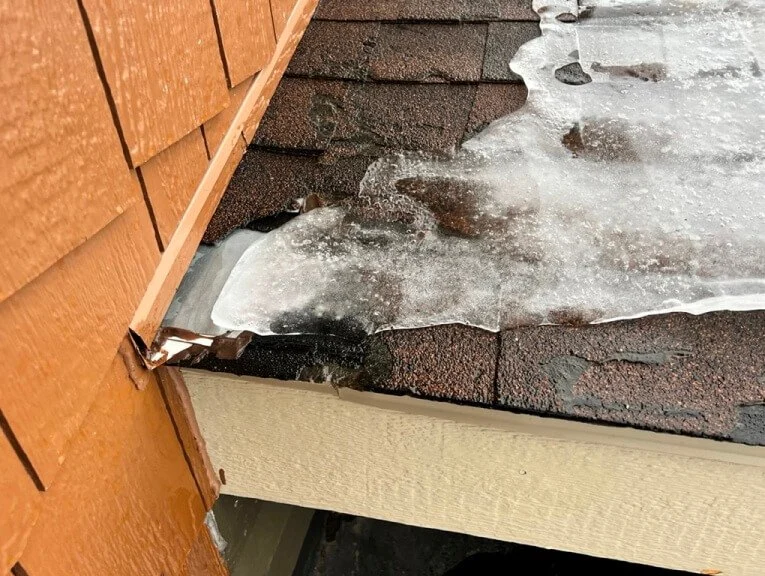
How to Fix a Roof Leak Caused by Ice Dams
php-templateCopy code- 1- Introduction: Understanding Roof Leaks Caused by Ice Dams
- 2- What Are Ice Dams and How Do They Form?
- 3- Signs of a Roof Leak Caused by Ice Dams
- 4- How to Fix a Roof Leak Caused by Ice Dams
- 5- Preventing Ice Dams in the Future
- 6- Case Studies: Successful Ice Dam Repairs
- 7- Conclusion: Protecting Your Roof from Ice Dam Damage
1- Introduction: Understanding Roof Leaks Caused by Ice Dams
Ice dams are a common cause of roof leaks during winter months, and they can lead to significant damage if not addressed promptly. When snow accumulates on your roof and melts, the water can refreeze at the edge, creating a dam that prevents proper drainage. This trapped water can seep under shingles and into your home, causing leaks and potential structural damage. In this article, we will explore how ice dams form, how to spot roof leaks caused by them, and how to fix and prevent these issues.
2- What Are Ice Dams and How Do They Form?
Ice dams form when heat escapes from your attic, causing the snow on your roof to melt unevenly. The melted water then runs down the roof and refreezes at the eaves, where the roof is colder. Over time, this process builds up layers of ice, creating a dam that blocks further water from draining off the roof. As more snow melts, the trapped water can pool behind the ice dam, slowly seeping under the shingles and causing leaks inside your home.
Common causes of ice dams include:
- Inadequate attic insulation: Poor insulation allows warm air to escape, melting the snow on the roof.
- Poor roof ventilation: Lack of ventilation in the attic causes heat buildup, contributing to uneven melting of snow.
- Heavy snow accumulation: A thick layer of snow increases the chances of ice dams forming.
3- Signs of a Roof Leak Caused by Ice Dams
If you suspect your roof is leaking due to an ice dam, look for the following signs:
- Water Stains on Ceilings or Walls: The most obvious sign of a roof leak is water stains on your ceiling or walls. If you notice these, it’s important to inspect your roof for ice dams.
- Ice Buildup Along Roof Edges: If you see large icicles hanging from the edge of your roof or ice accumulation along the eaves, this is a strong indicator of an ice dam.
- Leaking or Dripping Indoors: If water is dripping inside your house, it is likely that an ice dam is causing the leak.
Detecting these signs early can help minimize damage and prevent more extensive repairs later.
4- How to Fix a Roof Leak Caused by Ice Dams
Fixing a roof leak caused by an ice dam involves addressing both the immediate leak and the underlying issue. Here are the steps you can take:
4.1- Clear the Ice Dam
The first step in fixing an ice dam is to remove the ice buildup. You can use a roof rake with a long handle to gently remove snow from the roof. If the ice dam is thick, you can try using a de-icer to melt the ice. Do not attempt to use sharp tools to break up the ice, as this can damage the shingles and worsen the problem.
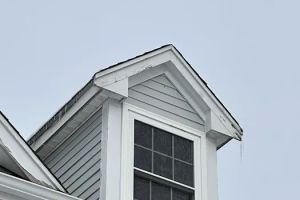
Robert Roofing and Gutters, Inc.
NorfolkNorfolk CountyMassachusetts
82 Main St, Norfolk, MA 02056, USA
4.2- Repair the Roof Leaks
Once the ice dam is removed, inspect the roof for damage. If water has seeped under the shingles, it may have caused damage to the roof deck or insulation. In this case, you may need to replace damaged shingles and repair any water damage inside the home. If the damage is extensive, it’s best to consult a professional roofer to ensure proper repairs.
4.3- Address Insulation and Ventilation Issues
After fixing the leak, the next step is to prevent future ice dams. Start by inspecting your attic insulation. If the insulation is inadequate, consider adding more to prevent warm air from escaping. Additionally, ensure your attic is properly ventilated so that air can circulate and keep the roof at a consistent temperature.
5- Preventing Ice Dams in the Future
Preventing ice dams from forming in the first place is the best way to protect your roof and home from leaks and damage. Here are a few strategies:
5.1- Improve Attic Insulation
Adding proper insulation to your attic helps to keep warm air inside your living space and prevents it from escaping into the attic. This will help keep the roof temperature consistent and reduce the chances of snow melting unevenly.
5.2- Ensure Proper Ventilation
Good attic ventilation allows cold air to circulate and keeps the roof cooler. This helps prevent snow from melting and refreezing. Install vents along the eaves and ridge of your roof to promote airflow and reduce the risk of ice dams.
5.3- Install a Roof De-Icing System
If you live in an area prone to heavy snow and ice, consider installing a roof de-icing system. These systems use heating cables along the edges of your roof to prevent snow and ice from accumulating and forming dams.
5.4- Clean Gutters Regularly
Clogged gutters can prevent water from draining properly, increasing the likelihood of ice dams forming. Ensure your gutters are free of debris and functioning properly to allow for smooth water flow off the roof.
6- Case Studies: Successful Ice Dam Repairs
Here are a couple of real-life examples of successful ice dam repairs:
6.1- The Johnson Family Home
The Johnsons experienced a roof leak caused by an ice dam during a particularly snowy winter. After noticing water stains on their ceiling, they used a roof rake to remove the snow and ice from the edges of the roof. They then repaired the damaged shingles and replaced the insulation in their attic. By adding more insulation and improving ventilation, they were able to prevent further issues with ice dams.
6.2- Maple Street School
Maple Street School faced recurring ice dams that caused water leaks into classrooms. They hired a roofing professional who installed a de-icing system and cleaned the gutters. After upgrading the insulation in the attic and adding ventilation, the school has not experienced any further issues with ice dams.
7- Conclusion: Protecting Your Roof from Ice Dam Damage
Roof leaks caused by ice dams can be a costly and frustrating problem, but with the right tools and preventive measures, you can fix and protect your home from future damage. By clearing ice dams, repairing roof leaks, improving insulation and ventilation, and considering a de-icing system, you can ensure your roof stays in top condition during the winter months. For expert advice and roofing solutions, visit BeachCo Roofing Hub for the best products and services to protect your roof and home.

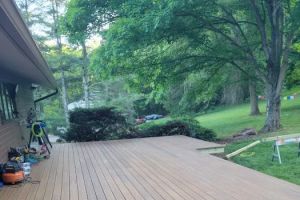
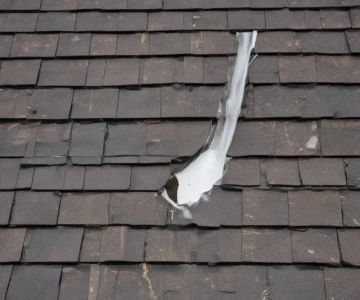

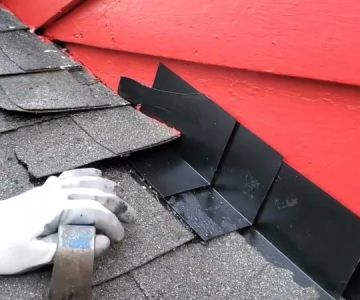
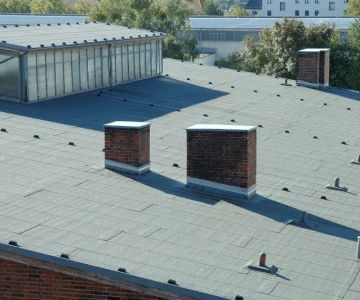
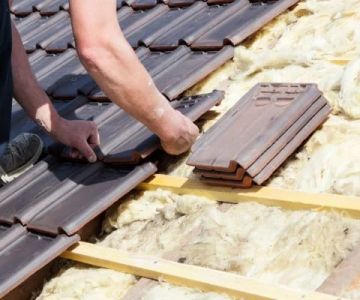

 A&M Roofing Services3.0 (6 reviews)
A&M Roofing Services3.0 (6 reviews) Cardinal Roofing & Siding Inc3.0 (9 reviews)
Cardinal Roofing & Siding Inc3.0 (9 reviews) Exact Exteriors5.0 (127 reviews)
Exact Exteriors5.0 (127 reviews)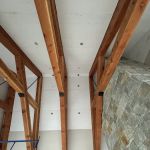 D&J Carpentry Roofing LLC5.0 (2 reviews)
D&J Carpentry Roofing LLC5.0 (2 reviews) Mega Construction of CT LLC5.0 (57 reviews)
Mega Construction of CT LLC5.0 (57 reviews)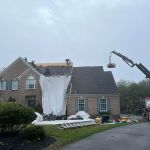 Michael Exteriors, LLC5.0 (3 reviews)
Michael Exteriors, LLC5.0 (3 reviews)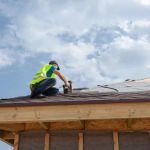 How to Choose a Roofing Contractor That is Certified by Major Manufacturers
How to Choose a Roofing Contractor That is Certified by Major Manufacturers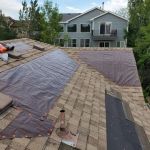 How to Repair a Roof Leak in a Building with a Fabric Tensile Roof Structure
How to Repair a Roof Leak in a Building with a Fabric Tensile Roof Structure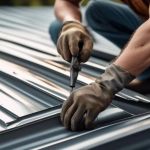 How to Repair a Roof Leak in a Building with a Corrugated Metal Roof
How to Repair a Roof Leak in a Building with a Corrugated Metal Roof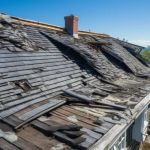 How to Identify and Repair Roof Damage from Sea Spray in Coastal Homes
How to Identify and Repair Roof Damage from Sea Spray in Coastal Homes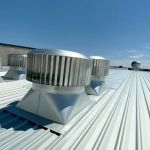 How to Install a Roof Vent for a Commercial Kitchen Exhaust System
How to Install a Roof Vent for a Commercial Kitchen Exhaust System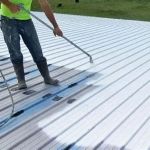 The Average Cost of a Roof Coating Application
The Average Cost of a Roof Coating Application